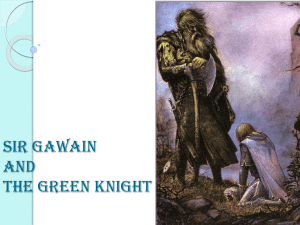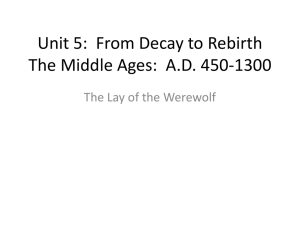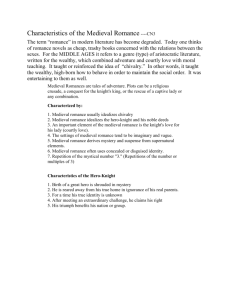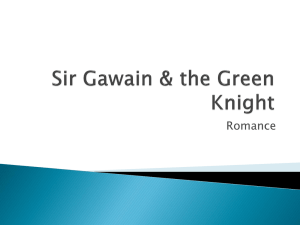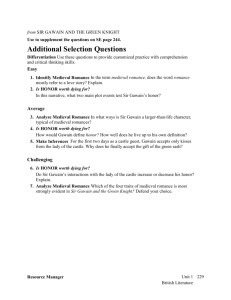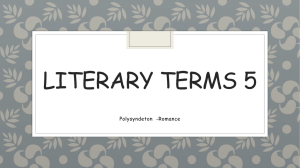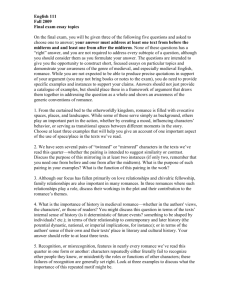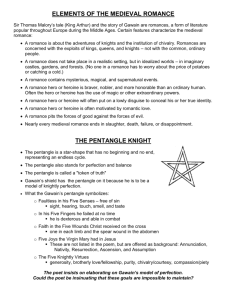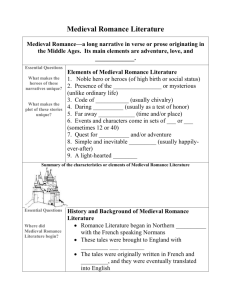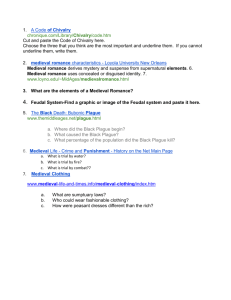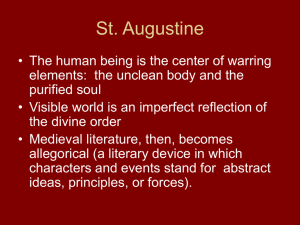Sir Gawain & the Green Knight: Background & Analysis
advertisement
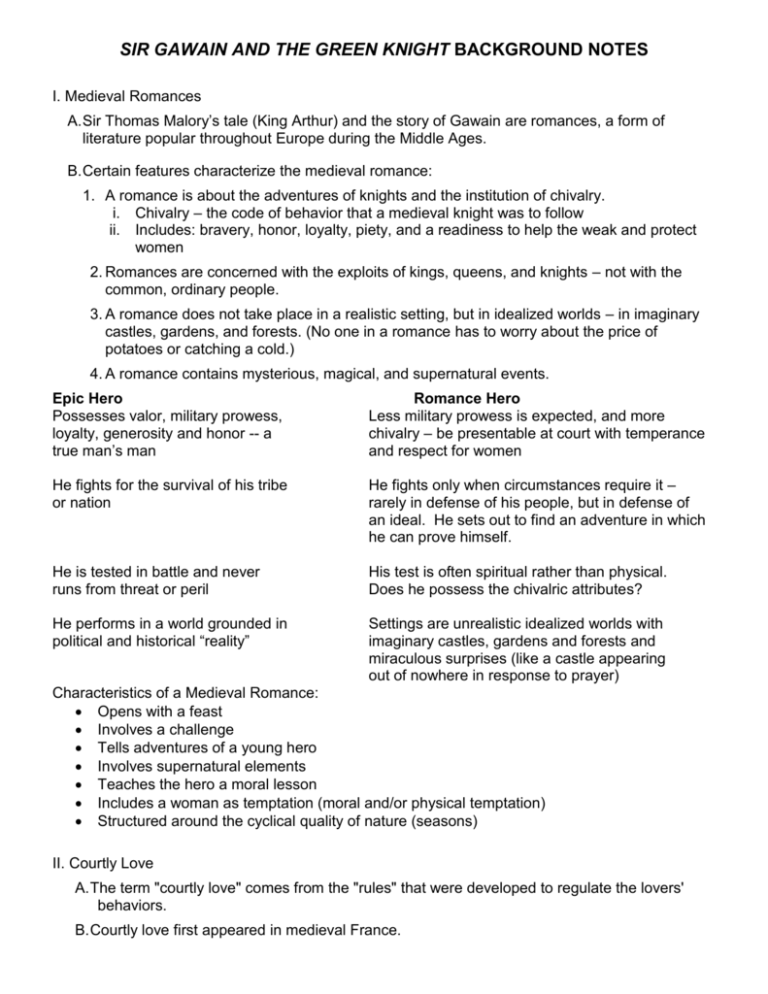
SIR GAWAIN AND THE GREEN KNIGHT BACKGROUND NOTES I. Medieval Romances A. Sir Thomas Malory’s tale (King Arthur) and the story of Gawain are romances, a form of literature popular throughout Europe during the Middle Ages. B. Certain features characterize the medieval romance: 1. A romance is about the adventures of knights and the institution of chivalry. i. Chivalry – the code of behavior that a medieval knight was to follow ii. Includes: bravery, honor, loyalty, piety, and a readiness to help the weak and protect women 2. Romances are concerned with the exploits of kings, queens, and knights – not with the common, ordinary people. 3. A romance does not take place in a realistic setting, but in idealized worlds – in imaginary castles, gardens, and forests. (No one in a romance has to worry about the price of potatoes or catching a cold.) 4. A romance contains mysterious, magical, and supernatural events. Epic Hero Possesses valor, military prowess, loyalty, generosity and honor -- a true man’s man Romance Hero Less military prowess is expected, and more chivalry – be presentable at court with temperance and respect for women He fights for the survival of his tribe or nation He fights only when circumstances require it – rarely in defense of his people, but in defense of an ideal. He sets out to find an adventure in which he can prove himself. He is tested in battle and never runs from threat or peril His test is often spiritual rather than physical. Does he possess the chivalric attributes? He performs in a world grounded in political and historical “reality” Settings are unrealistic idealized worlds with imaginary castles, gardens and forests and miraculous surprises (like a castle appearing out of nowhere in response to prayer) Characteristics of a Medieval Romance: Opens with a feast Involves a challenge Tells adventures of a young hero Involves supernatural elements Teaches the hero a moral lesson Includes a woman as temptation (moral and/or physical temptation) Structured around the cyclical quality of nature (seasons) II. Courtly Love A. The term "courtly love" comes from the "rules" that were developed to regulate the lovers' behaviors. B. Courtly love first appeared in medieval France. C.The love songs and poems told stories of a man's unrequited (unreturned) love for a woman. D.Usually the woman is the wife of another man —usually a nobleman or king (like King Arthur). E. The lovelorn hero feels inferior to the woman, and he flatters her in song and verse. F. He also does everything he can to refine himself to be more worthy of her love. G. He desires to serve her and be rewarded with her love. H.To love her is exquisite pain, yet it also gives him great joy (A paradox!). I. She can advance the affair and reward him, or she can reject and spurn him. III. Gawain’s Structure and Author A. Poem is part of the alliterative revival 1. a 14th century movement to return to alliteration 2. rejects the rhyming verse of the Continental poets and Southern poets (like Chaucer) B. Not arranged in typical stanza 1. vary in length 2. each stanza is capped with a concluding “bob and wheel,” which is five short crossrhyming lines, consisting of a single one-stress line (bob), followed by four three-stress lines(wheel) C. A typical medieval romance has little organization with knights engaged in a series of haphazard wanderings and adventures – but this poem is very focused and indicates structural unity 1. Use of parallels 2. Everywhere there are examples of balance. Sir Gawain is the Pentangle Knight (five sides) so look for 2s and 3s (=5) -- 2 arming scenes, 2 games, 3 hunts, etc. D.Poem fuses Celtic literature with elements of French romance 1. Celtic: “Beheading Game” & “Exchange of Winnings” Game Games had certain rules and boundaries (like a year and a day to meet) Games were serious – no quitting and can’t back out (matter of honor) Games were uncertain in outcome 2. Chivalric inclusions (French) 3. Amorous temptations are found in a few older King Arthur stories E. The author is unknown 1. probably lived in northwestern England 2. familiar with courtly life 3. often called the Pearl Poet or the Gawain Poet

